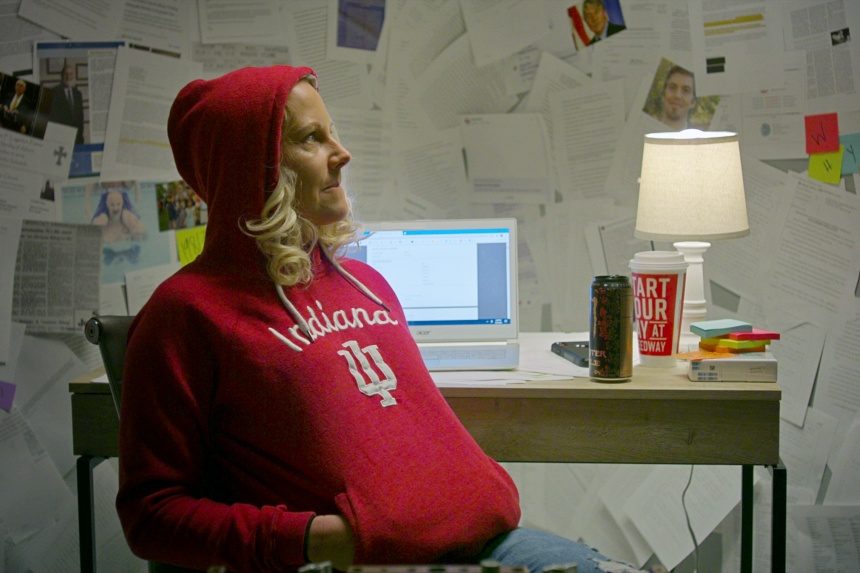Our Father
⭐⭐⭐⭐
Run Time: 1 hour 37 minutes
Director: Lucie Jourdan
Streaming on Netflix
It makes perfect sense that Our Father — a documentary that chillingly chronicles the twisted story of an Indianapolis fertility doctor who secretly impregnated scores of women with his own children — is produced by Jason Blum, the man who brought us the latter-day horror classics Get Out and The Purge.
The fact is, the true story of Our Father is more awful than just about anything most Hollywood screenwriters could imagine.
For decades, Dr. Donald Cline was the go-to expert in all of Indiana for couples with fertility problems. He was celebrated on magazine covers. He was an in-demand speaker at medical conferences. He was an elder at his church.
He was also a serial impregnator who used his own specimens not only in women who thought he was sourcing anonymous donors, but also in women who were told the samples were from their husbands.
Every horror story needs a hero, and here it’s Jacoba Ballard, a blue-eyed, blonde-haired only child who knew her parents had seen a fertility doctor, and who eventually decided to use a 23andMe DNA test kit to see if she had any half-siblings or cousins nearby.
The jaw-dropping result: Ballard learned she had seven half-siblings, all of them living in the Indianapolis area — a number that violated the best practices of fertility medicine, which limit donors to three children, tops.
Even before she could recover from the shock, Ballard began contacting her newfound brothers and sisters. Before long she determined they had in common a single, sickening history: All were conceived in the office of Dr. Cline.
One by one, first-time director Lucie Jourdan introduces us to Ballard’s growing complement of half-siblings, registering the mounting contingent with a digital tabulator. By film’s end, the total tops 90…and counting.
The women, especially, bear a striking resemblance — leading one of them to confess she dreads going out for fear of coming face-to-face with a heretofore undiscovered half-sister.
Even worse, another speculates, because the population of half-siblings fathered by Cline is so concentrated in an around Indianapolis, there is a very real possibility that a half-brother and sister could end up married.
Like lots of horror flicks, Our Father is guilty of occasionally going over the top — the relentless music score is incessantly ominous, at times cheapening the real-life menace that the half-siblings and their parents endure daily.
The film works best when Jourdan simply lets the camera roll, focusing on the eerily similar faces of the now-middle-aged siblings; lingering on the tears of their mothers, one of whom says, plaintively, “I feel like I was raped 15 times by Dr. Cline.”
Worst of all, the children of Dr. Cline soon discovered that the state of Indiana was not particularly interested in hearing their stories because, as one former prosecutor tells the camera, nobody was convinced the doctor’s actions were actually illegal.
As if things couldn’t get any more bizarre, Jacoba and her newfound brother-and-sisterhood soon discover that Cline may well have been more than just a sick physician with a God complex — he may well have been part of a secret society planning to populate the world with a new generation of Aryan prototypes.
The not-so-good doctor himself, unsurprisingly, did not participate in the documentary, but once again Jacoba Ballard proves herself to be the story’s hero: She recorded many of their conversations, enabling us to hear the voice of a man who is haughty, defensive, domineering, and manipulative.
Even when faced with irrefutable proof that he is one of the great medical scoundrels of his time, Cline comes off as utterly unrepentant — a defiant cross between Gregory Peck’s true believer in The Boys from Brazil (“You are the living duplicate of the greatest man in history!”) and Alec Baldwin’s imperious surgeon in Malice (“I am God!”).
Of course, those guys were pure fiction. Sometimes, Our Father reminds us, the monsters are real.
Featured image: Netflix
Become a Saturday Evening Post member and enjoy unlimited access. Subscribe now



